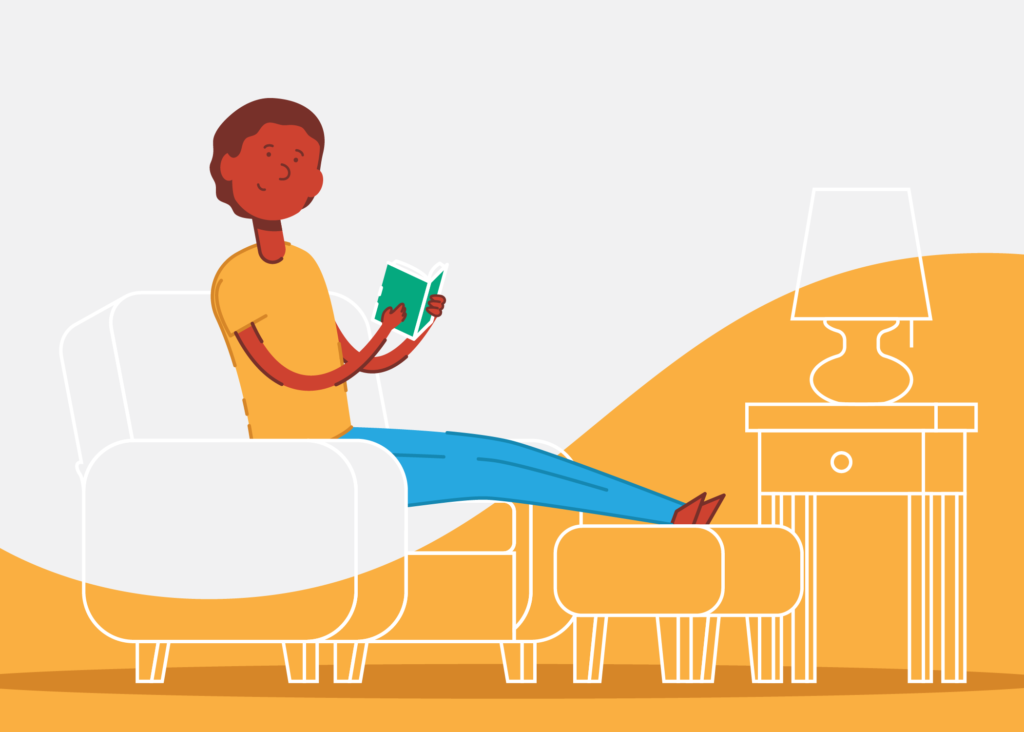Smartphones and other mobile devices have become staples of life in the past two decades. As technology has advanced, they have become our one-stop shop for consuming information, capturing a moment, enjoying entertainment and connecting with loved ones. However, these same devices that give us access to all of these exciting opportunities right at our fingertips may also have negative long-term effects. But there’s good news! These effects can be kept at bay by putting down the phone every once in a while.
A Break from Social Media
Many people go on social media whenever they look at their phones (which is to say, a lot). But social media has been shown to increase stress, anxiety and depression levels because of the mass amounts of entertainment, news, information and other content that we are accessing through them. This causes information overload that can be overwhelming and overstimulating to the brain, resulting in it becoming exhausted much more easily. It also can cause a numbness to current events through what is sometimes called the “mindless scroll”. Putting down the phone can help drastically reduce the amount of time a person spends on social media, which will also give the brain a break from consuming so much data. This can help improve mental health by allowing the brain a chance to rest.
Higher Levels of Concentration
Many recent scientific studies have demonstrated that the human attention span is rapidly decreasing because we’re consuming information faster than ever and communicating with each other at high speeds. This alarming fact is especially true in children, and is linked to phone and digital device usage. Not only that, some of these studies have suggested that taking a break from a difficult task to check your smartphone actually tires your brain out more. This leaves your brain less able to focus on completing the rest of the task and decreases efficiency, productivity and performance. But keeping the phone tucked away and doing something like reading a book, having a face-to-face conversation, doodling or calmly meditating can actually give your brain a break. This will allow you to recuperate and recharge enough to finish whatever you’re doing.
Facing Difficult Emotions
Difficult and challenging emotions in daily life, such as grief, anger, fear, frustration and anxiety, can be hard to face. Research shows that people who already struggle with facing their emotions in a healthy way may turn to cell phone use as a coping mechanism to block them out or avoid dealing with them. This indicates that reducing phone use can help an individual see and process the world and the realities in front of them. By doing this, the individual can come to terms with their situation and learn how to effectively process depression, anxiety and other mental health conditions.
Getting Active In Other Ways
As useful as they can be, phones are often distracting devices that cause individuals to lose track of time or neglect other healthy habits. Setting the phone aside can open up opportunities to do activities like exercising, whether that be going for a run, doing yoga or heading to the gym. It can also empower the individual to find new ways to occupy themself, such as by reading a book, having a stimulating conversation with a loved one, working on a personal creative project and much more. Most of these activities do not require you to use a phone unless you’re using it as a timer or tracking exercise data (and even then, non-smartphone tools exist for these purposes). Non-digital activities will stimulate your mind in a much more positive way than looking at your phone screen will.
Phone usage has also been linked to excessive dopamine production, which is a similar physiological effect to that of addiction. Reducing screen time can break this pattern and empower your brain to rewire itself and form new habits. A longer attention span could be the result, along with a lack of craving for constant digital stimulation. Your mind can also become more energized due to breaking such patterns.
Beyond these benefits, putting down the phone also opens up other possibilities for organization and inspiration. Studies have shown that going analog with creativity (i.e. using pen and paper over a notes app) stimulates the imagination and forces your brain to slow down and take its time to process complex thoughts. Also, the blue light that cell phones radiate from their screens is linked to changes in brain waves that can worsen pre-existing mental health conditions.
We’re Here to Help!
Mental health conditions and addiction are significant issues in our nation, and a rapidly changing social and cultural landscape is in front of us. These issues can make it difficult or frustrating to attempt to make personal wellness changes that can benefit us over time. However, choosing to make these changes now (which can begin as simply as deciding to use our smartphones less) will impact not only us, but also our spheres of influence. Contact us today for more information or to schedule an appointment!
